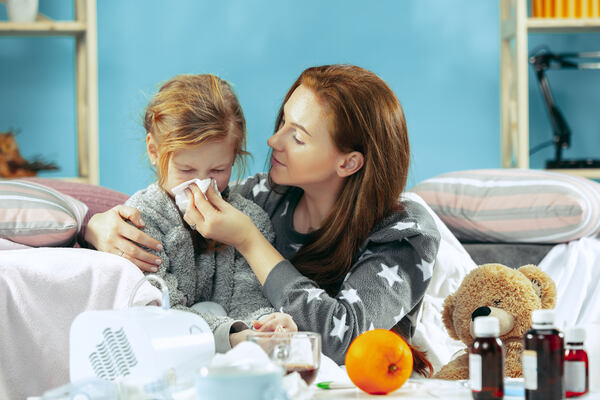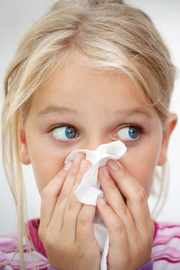Parenting with Allergies: A Comprehensive Guide for Raising Allergy-Aware Kid
Over the years, there has been an increasing prevalence of allergies in children. Last year, 27.32% of kids suffered from at least one of the three diagnosed allergic conditions: eczema, food allergies, allergic reactions to animals, and seasonal allergies. In some cases, allergies can be life-threatening.
This is why children need to learn more about their potential severity and how to help themselves or others with allergic conditions.
Here’s a parenting guide you can follow to raise allergy-smart kids who can identify the symptoms of different allergies and toxic reactions and know how to respond to them.
Understanding Allergies in Children
Allergic reactions happen when foreign bodies, which aren’t typically harmful, enter the body. These foreign bodies are called “allergens.” They trigger the immune system to respond, thus resulting in allergic reactions. There are different kinds of allergies, with food allergies and seasonal allergies being the most common.
Typical symptoms of most allergies include manageable ones like stomach aches and rashes. However, some dangerous reactions may also occur. One of the most life-threatening could be anaphylaxis or difficulty breathing. Early signs of allergies in kids include frequent rashes and hives, sneezing and coughing, and stomachache after eating a specific food.
Medications could vary in different ages. For instance, for babies, Dr. Talbot’s Infant Allergy Medicine – Relieving Allergies with Care is safe and effective. Additionally, kid-friendly formulations like Zyrtec, Claritin, and Allegra are safe oral antihistamines for kids. However, before giving your child any medication, consult their doctor first.
Nurturing an Allergy-Smart Kid
To raise an allergy-smart kid, start educating them about allergies as early as possible. It’s important to use age-appropriate language when discussing allergies with your kids. For food allergies, you can talk to them about simple terms like “safe food” and “unsafe food” to eat. Label the food they are allergic to as “safe food” and the ones that trigger their allergies as “unsafe food.”
When talking to them, use “we” instead of “I” statements. For example: “This is how we take this medication.” You can also bring them to groceries and involve them in cooking meals so you can point out specific items that they shouldn’t eat.
Also, tell them to only accept food from trusted adults who know about their allergies and the safe food they can eat. Additionally, talk to them about their symptoms. Don’t instigate fear response to the symptoms and just describe them in clear terms. Don’t show them you’re anxious or stressed about their allergic reactions. Remember that kids may feel nervous when they observe the same feeling in their parents.
Of course, tell them what they can do if an allergic reaction arises. Teach them about taking medication or finding an adult if they feel sick. Moreover, you must also tell them about other people’s dietary needs, especially those with allergies. Tell them to ask if anyone has an allergy before offering a snack to their friends. Teach your kids empathy and respect for other allergy sufferers.
Protecting Sensitive Skin
Allergy awareness goes beyond food—it’s also about what touches your child’s skin. For kids with sensitive skin or fabric allergies, hypoallergenic clothing can make a big difference. These garments are made from natural, breathable materials that reduce the risk of irritation and allergic reactions. Choosing soft, dye-free fabrics helps create a more comfortable, itch-free day at school or play. It’s just one more way to support your child in feeling safe and confident in their everyday environment.

Image by master1305 on Freepik
Building a Safe Home Environment
Building a safe home environment means allergy-proofing your home. Here are some effective strategies you can follow:
-
Improve air quality
Ensure the house is well-ventilated. This way, you can control the allergens in the air and avoid allergic reactions in the family. Instead of using regular filters for your air conditioning system, use HEPA (high-efficiency particulate air) filters to prevent pollens, bacteria, and molds from recirculating in your space.
In addition, during pollen season, close the windows, doors, and other entry points in your homes to keep pollen and outside allergens out of your space. You can also use air purifiers and humidity controllers to avoid molds and other allergens that thrive in humid spots.
-
Regularly clean your home
Set up a weekly cleaning routine for your rugs, carpets, mattresses, and upholsteries. You can hire professional cleaners to get the job done for you. Investing in vacuum cleaners with HEPA filters can also ensure dust-free areas in your home. Learning how to clean your mattress to reduce dust mites and other allergens that accumulate over time can also help provide a healthier space for your family. You can increase the frequency of cleaning during spring as tree pollen counts surge during this season.
-
Control pet dander
Limit the spaces where your pets can enter. This way, your kids and other family members are less likely to develop pet allergies. You should also bathe your pets regularly to reduce the fur they shed. A good option for kids with allergies is to select hypoallergenic cats and dogs.
Navigating School and Social Settings
You can tell school staff about their allergies if your kid is in school. Talk to the school nurse, teachers, and administrators. You should also prepare an allergy emergency kit that your kid can bring inside their bag. Besides the oral medication for kids with allergies, you can also include epinephrine, albuterol, H1 antihistamines, and H2 antihistamines in the emergency kit.
These medications can treat anaphylaxis if your kid or someone at school experiences difficulty breathing due to an allergy. Teach your kids how to self-administer age-appropriate medications so they know when and how to use them in an emergency. When dining out or traveling, always consider allergy-friendly restaurants and destinations.
Educating Extended Family and Caregivers
Get everyone in the family involved. Educate relatives, grandparents, and the babysitters. Give them clear guidelines on proper food handling. Also, teach them how to administer medications to your kids.
Takeaway
Your kid might feel isolated because of their condition. However, it’s important to note that 1 in 13 kids in the United States suffers from such conditions, specifically food allergies. As a parent, seek support from online communities where you can get information and advice on how to raise an allergy-smart kid. Within this group, you can also ask for restaurant recommendations and engage in discussions regarding allergies in kids.
Read about allergy treatments available at medical centers.





